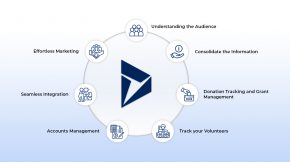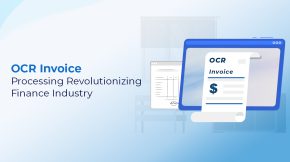Your Guide to Seamless QuickBooks to Business Central Migration
For years, QuickBooks has been the trusted companion for countless small businesses. It’s the familiar ledger that got you started, managed your first payroll, and sent those initial invoices. It’s comfortable. It’s reliable. But as your business grows, you might be feeling the strain. The spreadsheets are multiplying, manual data entry is eating up valuable hours, and getting a real-time view of your entire operation feels like a fantasy.
If this sounds familiar, you’re not facing a software problem; you’re facing a growth problem. And the solution for countless growing enterprises is QuickBooks to Business Central Migration.
Is Your Business Outgrowing QuickBooks?
This isn’t just about switching accounting software; it’s about upgrading your entire business operating system. Let’s explore why a QuickBooks Migration to Business Central is a strategic move for your future, touching on cloud benefits, security, compliance, cost savings, and the incredible power of integration.
Why Move? The Tipping Point for Growing Businesses
QuickBooks is fantastic for what it is, but its design has limits. You might be experiencing:
The Spreadsheet Spiral: Your desk isn’t covered in paper anymore—it’s a digital jungle of Excel files. One for inventory counts, another for complex reports, and a dozen more “final_final_v3” sheets for project tracking. Sound familiar?
- Departmental Silos: It’s like your teams are playing on the telephone with crucial business information. Great sales deals are closed, but the warehouse has no clue. Shipping gets an order out the door, and accounting will only get wind of it weeks later through the methodical paper trail. Frustrating communication glitches lead to costly mistakes, lost opportunities, and annoyed customers.
- Manual Madness: Month-end closing isn’t just a procedure—it’s a time for dread. With this, you can expect to feel awful while spending countless hours finding some spreadsheets, emailing various managers for their numbers, and then doing some desperate copy-pasting through a dozen different files. It’s highly repetitive, prone to errors, and just a total drain on morale and time for your team.
- Blind Spots: Right now, making a big decision probably feels like taking a leap of faith. You’re forced to rely on gut feelings or reports that are already outdated because a real-time, crystal-clear view of your company’s health simply doesn’t exist. You’re driving your business by looking in the rearview mirror.
If this hits home, please know that you are not alone. This is the universal growing pain that signals a business is ready to evolve. It’s the most common and powerful reason companies decide to embark on a QuickBooks to Business Central Migration. This journey isn’t just about new software; it’s about breaking down these exact barriers for good. A well-executed QuickBooks Migration to Business Central directly tackles these inefficiencies, transforming how your entire company operates and communicates. When you plan your QuickBooks to Dynamics 365 Business Central Migration, you are specifically choosing to replace these pain points with seamless, automated, and connected processes.
This is the universal signal that your business has outgrown its starter tools. It’s the most common reason companies begin to explore a QuickBooks to Business Central Migration.
Beyond the Books: Your New Company Command Center
Think of Microsoft Dynamics 365 Business Central not as a simple accounting upgrade, but as your mission control. While QuickBooks is a great ledger, Business Central is a full-bodied business management solution (ERP). It’s the centralized system on Cloud that connects your finances, sales, service, supply chain, and operations into one harmonious, streamlined system. Let’s explore why you should consider QuickBooks to Business Central Migration
Peace of Mind with Cloud Power & Flexibility:
Imagine ditching the server related costs and the stress of manual backups. A QuickBooks Migration to Business Central brings everything to the secure cloud. This means you and your team can access every piece of data you need, securely, from anywhere—whether you’re at the office, working from home, or on the go. It enables remote work, automatically protects you from data loss, and frees you from IT maintenance hassles. The flexibility gained from this cloud-first approach is a game-changer.
Security & Compliance That Lets You Sleep at Night:
As a Microsoft product, Business Central is built on the incredibly secure and scalable Microsoft Azure cloud platform. This isn’t just good security; it’s enterprise-grade protection that was previously only available to massive corporations.
We’re talking:
- Bank-Level Encryption: Your data is scrambled and protected, both when it’s stored and when it’s moving between systems.
In-Built Compliance: It’s created to adhere strictly to high global standards, like GDPR, ISO, and SOC, right from the get-go-and there’s a lot less stress on your mind.
- Precision Permissions: You can be the boss of who sees what. Granting user access can be done at the field level, where they see only the data that is necessary.
This solid framework is fundamental in any modern QuickBooks to Dynamics 365 Business Central Migration. It fosters customer trust and protects the most sensitive information.
A System That Grows with You, Not Against You
Isn’t that the cherry on top of QuickBooks to Business Central Migration? That one wouldn’t have to be done again in five years; MS Business Central is made to scale smoothly. I want to add users, open a new location, or handle 10x more transactions? The system works for you, transforming what could have been a pain into a gain. This ability to scale is one of the very chief reasons behind a QuickBooks Migration to Business Central being successful.
Unmatched Scalability for Future Growth
Your new system shouldn’t need replacing in another three years. Business Central scales with you. Need to add more users? Done. Expand into new territories with multi-currency and multi-language support? Easy. Handle a massive increase in transaction volume? Business Central won’t break a sweat. This scalability is a core reason for a QuickBooks Migration to Business Central.
Real Integration Capabilities of the Microsoft Stack Multiplying the Power of Business Central:
Business Central is the most potent when integrated with the Microsoft stack. It doesn’t just integrate alongside your tools; rather, it integrates seamlessly across them.
- Microsoft 365: You use Outlook, Teams, and Excel. You send an invoice in Outlook, you discuss customer accounts in Teams, and you crunch numbers in Excel, all live connected to Business Central.
- Power Platform: Create no-code custom apps with Power Apps, automate workflows with Power Automate, and obtain AI-powered insights with Power BI. In other words, assemble your solution without shelling out the big bucks for actual development.
- Azure Services: Connect to a gargantuan ecosystem of apps and services.
The Excel Synergy You Crave
We know you love Excel. So does Microsoft. A QuickBooks to Dynamics 365 Business Central Migration doesn’t take Excel away from you; it supercharges it. You can:
- Edit in Excel: Wrong-way Mend Excel: Open any list from Business Central (customers, items, general ledger) in Excel and edit. Then publish with a single click. No more copying and pasting.
- Analyzing with Power BI: Reports are the ordinary fare. Instead, link the Business Central data to Power BI and create beautiful, interactive dashboards that provide that reality of profitability, sales trend analysis, and healthy inventory.
The Migration Journey: What makes a successful QuickBooks to Business Central Migration?
Any migration that succeeds is not a “lift and shift”, it demands a real strategic approach.
Discovery and Planning: Our ERP experts will set out to work upon an experience of undertaking and projecting your business process. These guidelines hardly make a negotiation with a need so slightly at QuickBooks and anticipates a data migration, thus migrating data from QuickBooks for such packages.
- Customization & Setup: Business Central is configured to map your workflows and not otherwise.
- Data Migration: The key historical data like customers, vendors, items, and general ledger accounts are secure and appropriately migrated into the new system.
- Testing & Validation: Before go-live, everything is rigorously tested to guarantee perfection.
- Training & Go-Live: Your team then undergoes training on the new system, and excitement replaces apprehension.
- Support & Optimization: Ongoing support will ensure you are fully capitalizing on your investment.
The Human and Cost Benefits- beyond the Technical
A QuickBooks to Dynamics 365 Business Central Migration guarantees ROI:
- Cost Savings: IT costs will be reduced through cloud subscription, multiple disparate software subscriptions will be eliminated, and free time will be obtained for employees to do higher-value work instead of manual tasks.
- Empowered Employees: Give your team the tools needed to work more efficiently, collaborate better, and take initiative. Acting on data takes less time for them than searching for it.
- Informed Leadership: Strategic decisions are made from a complete, accurate, and real-time view of your company’s performance.
Is It Time for Your QuickBooks to Business Central Migration?
If you are spending more time managing your software than growing your business, the time is now. A QuickBooks to Business Central Migration is an investment into your company’s efficiency, security, and future growth potential. It’s about replacing limits with possibilities and converting questions into answers. It is about choosing a system that will not only record your history but will help you build your future.
Are you ready to find out how Dynamics 365 Business Central would look for your business? Contact us for a tailor-made Business Central ERP demo, we’ll guide you from QuickBooks into a fully integrated, Cloud-powered future.












